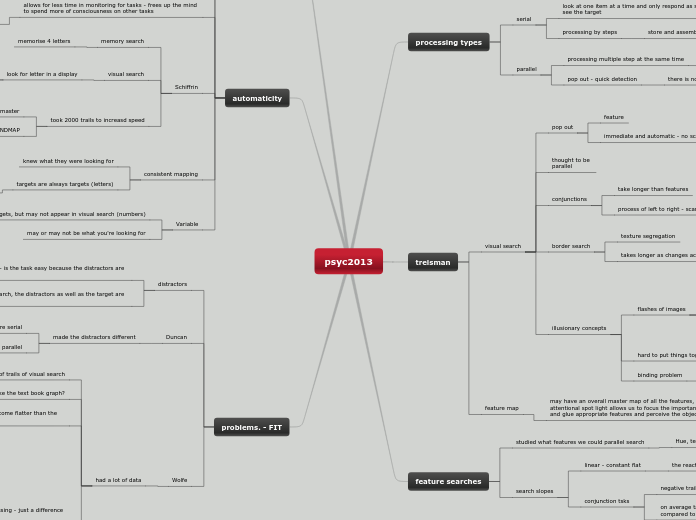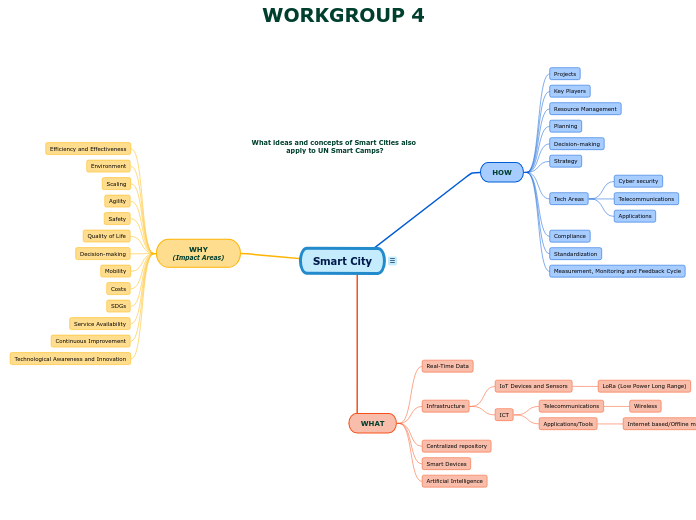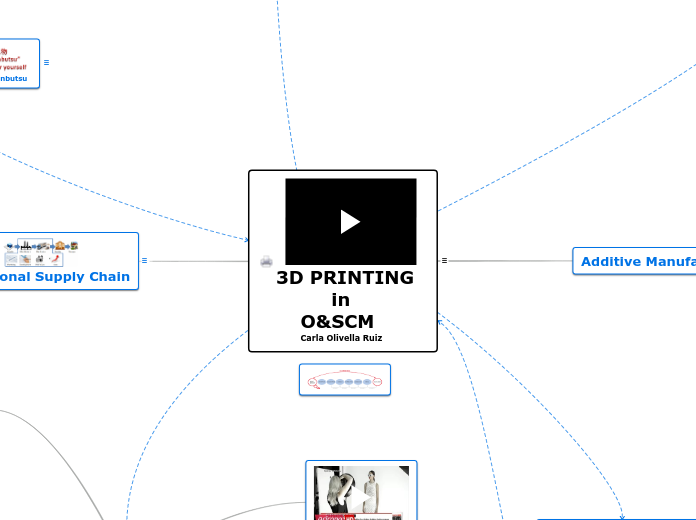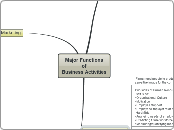psyc2013
problems. - FIT
Wolfe
had a lot of data
there's not such thing as parallel processing - just a difference in efficiency
deicion making problem
no difference in feature and conjunction searches
easier tasks has less decisions to be made
faster when the display is larger because the task becomes easier - makes the target more salient
differences in efficiency
hard tasks
looking for activation map for red and circular
heterogenous distractors
inefficient task
completely overlapping
easy tasks
guided searchs
we have guided searches and activation maps
activation map for distractors could just be thrown away
search results for feature searches did come flatter than the conjunctions
never completely flat for feature searches
did it come out like the text book graph?
put together millions of trails of visual search
Duncan
made the distractors different
less parallel
the search became more difficult and more serial
distractors
in conjunctive search, the distractors as well as the target are all different
are all the same - is the task easy because the distractors are all the same?
automaticity
Variable
may or may not be what you're looking for
given targets, but may not appear in visual search (numbers)
consistent mapping
targets are always targets (letters)
every item you saw a K or H you knew you would be looking for it
knew what they were looking for
Schiffrin
took 2000 trails to increasd speed
LOOK UP OTHER MINDMAP
said that practice takes a long time to master
look for letter in a display
searching through memory? or physical items
1 or 4
memory search
memorise 4 letters
allows for less time in monitoring for tasks - frees up the mind to spend more of consciousness on other tasks
fast, run in parallel, don't draw on any central capacity. unavailable to consciousness and unavoidable, ballistic. Hits target no matter what you do. assumption that automatic processes can be interupted
automatic process
requires learning and a lot of practice
per attentive
happens without any learning
built into visual system
automatic processing
feature searches
search slopes
conjunction tsks
on average takes much longer for greater numbers of displays compared to single feature targets
negative trails
take longer on average as its harder to say no
linear - constant flat
the reaction time is independent of the display size
studied what features we could parallel search
Hue, terminators etc.
treisman
feature map
may have an overall master map of all the features, but our attentional spot light allows us to focus the important features and glue appropriate features and perceive the object
build an object file using features bound together
visual search
illusionary concepts
binding problem
thought to support serial processing
hard to put things together without attention
flashes of images
noticing shapes and colors, but not putting it together coherently
blue car and red toy
red car and blue toy
border search
takes longer as changes across border are more complex
texture segregation
conjunctions
process of left to right - scan
take longer than features
thought to be
parallel
pop out
immediate and automatic - no scanning or searching
feature
processing types
parallel
pop out - quick detection
there is no change to response time as we increase distractors
processing multiple step at the same time
store and assemble all steps simultaneously at the end
serial
processing by steps
store and assemble after each step
look at one item at a time and only respond as soon as you see the target
as we increase distractors we have increased response time









